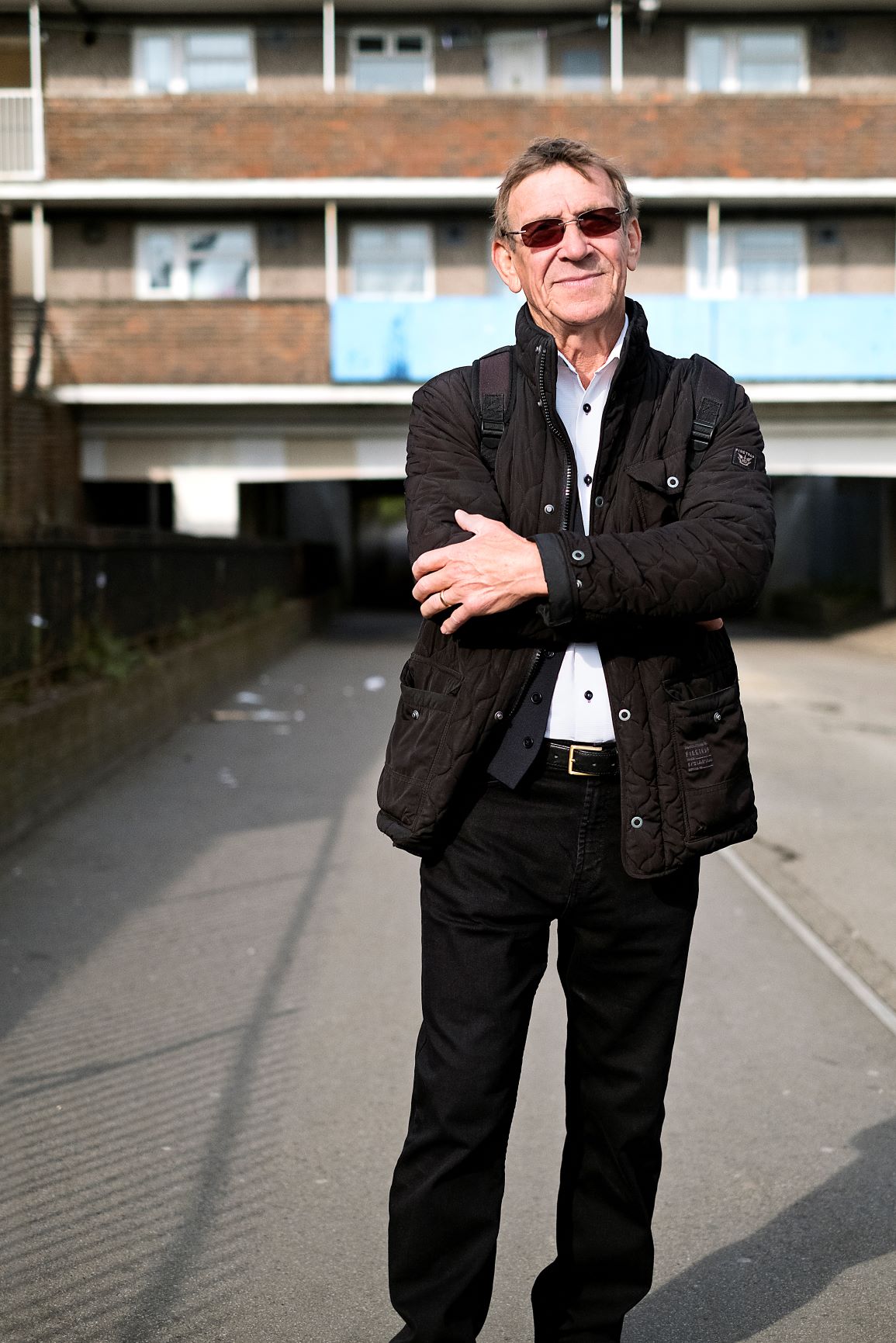 The era after the Second World War was tough for my parents. Due to illness my father was discharged from the Navy, with whom he’d served for many years, and returned home to Stamford Hill. My mother wasn’t a well lady, in hospital more often than not. Their decision to put myself and three siblings in the care of an orphanage wasn’t taken lightly. I can only imagine the build-up to this heartbreaking decision. Yet, they knew it was for our own good. My parents weren’t alone in making such a decision; many other families who were financially struggling saw it as the lesser of two evils. The time I spent in the orphanage is still vivid to me. Sister Gabriella (who worked there) was a diamond in the rough who made my stay more tolerable. My parents’ situation improved and I returned home, bringing an end to that unfortunate chapter. However, in later years my father explained how close it came to me and my siblings being relocated to Australia. At the time, the government came to the conclusion it was cheaper to send children to Australia than care for them in England. Only recently has it been uncovered just how harsh life was for some of these child migrants.
The era after the Second World War was tough for my parents. Due to illness my father was discharged from the Navy, with whom he’d served for many years, and returned home to Stamford Hill. My mother wasn’t a well lady, in hospital more often than not. Their decision to put myself and three siblings in the care of an orphanage wasn’t taken lightly. I can only imagine the build-up to this heartbreaking decision. Yet, they knew it was for our own good. My parents weren’t alone in making such a decision; many other families who were financially struggling saw it as the lesser of two evils. The time I spent in the orphanage is still vivid to me. Sister Gabriella (who worked there) was a diamond in the rough who made my stay more tolerable. My parents’ situation improved and I returned home, bringing an end to that unfortunate chapter. However, in later years my father explained how close it came to me and my siblings being relocated to Australia. At the time, the government came to the conclusion it was cheaper to send children to Australia than care for them in England. Only recently has it been uncovered just how harsh life was for some of these child migrants.
'The development of Harlow New Town was built upon blood, sweat and tears'
Being exposed at a tender age to such life-changing situations made me very independent. For one reason or another I didn’t receive a great schooling. I left school at fifteen and sought employment. My options were straightforward; factory work or labouring. By nature labouring was tough and not for the workshy. But if you could do a man’s work you earned a man’s wage; certainly exceeding what I could earn in a factory.
In those days there was a term called ‘the lump’. Put simply, it was labour-only subcontracting. Workers were in essence self-employed, therefore not entitled to holiday or sick pay, instead receiving a ‘lump sum’, more often in cash, to cover all expenses including tax. Keen to be in on the action, I made sure I was kerbside, shovel in hand, by 6.30am as the contractors’ lorries pulled up alongside offering work. Prior to this I had never heard of Harlow let alone visited it. However, by the winter of 1962 I was making the journey daily, along with a dozen other chaps, on the back of an open-top lorry. The times were akin to the gold rush; a stampede of labourers all looking to stake their claim to the work on offer. As we approached our designated construction area work instructions were given. Holy Moley, was it cold that winter, and mud of biblical proportions. The only machinery I ever saw was the occasional dumper truck. A sexist term, I know, but at that time it was pure manpower. I soon realised the development of Harlow New Town was built upon blood, sweat and tears.
'It was like a scene from the O.K. Corral'
I started at the bottom, literally – digging foundations. I then progressed to brickies’ labourer – a prized job due to the higher earnings available. The harder I worked, the more bricks the five or six bricklayers (all on a bonus) could lay in a day. Up the ladder sharpish with a hod laden with ten bricks. The descent wasn’t a chance to relax: with feet placed on the ladder’s outside edge you slid down – it was all about speed. It was common practice to use lorry inner tubes, cut to the shape of your palm with a hole for your thumb, as protection – without such improvisation the skin on your hands would be worn through.
Despite the harsh conditions, sabotage was rife among those looking to snare your job. One midwinter favourite of the saboteur was to reconnect the hose to the standpipe after a labourer had carefully drained it. Said hosepipes, hundreds of yards in length, snaked their way around construction sites providing water so labourers could mix concrete and mortar. The next morning, you had to contend with the thawing of a 100-yard popsicle, while at the same time dealing with abuse from upset brickies, who without mortar were unable to ply their trade. Being sick wasn’t an option. Firstly you didn’t get sick pay; secondly your absence was an opportunity for someone to poach your job.
Tempers on site ran high. It took little for a fight to break out during tea breaks. It was like a scene from the O.K. Corral – someone would walk into the workhut, utter something derogatory, and all hell would break loose with tea and fists flying! There was me, barely shaving – a boy in a man’s world.
With a day’s work done I would wearily clamber onto the lorry and seize the opportunity to get some rest, only raising my head to bang my fist on the cab as I neared home. I worked on site in Harlow for around two years, witnessing first-hand the town’s development. However, now I’ve no recollection as to where I was once working – Harlow is now vast. I recount these stories to my children, but it’s hard for them to comprehend. I can’t blame them, especially as they are both high flyers in the City – it’s worlds apart. But the hard work and antics weren’t enough to put me off. In fact, they were the foundations to a lifelong career in the building trade.
